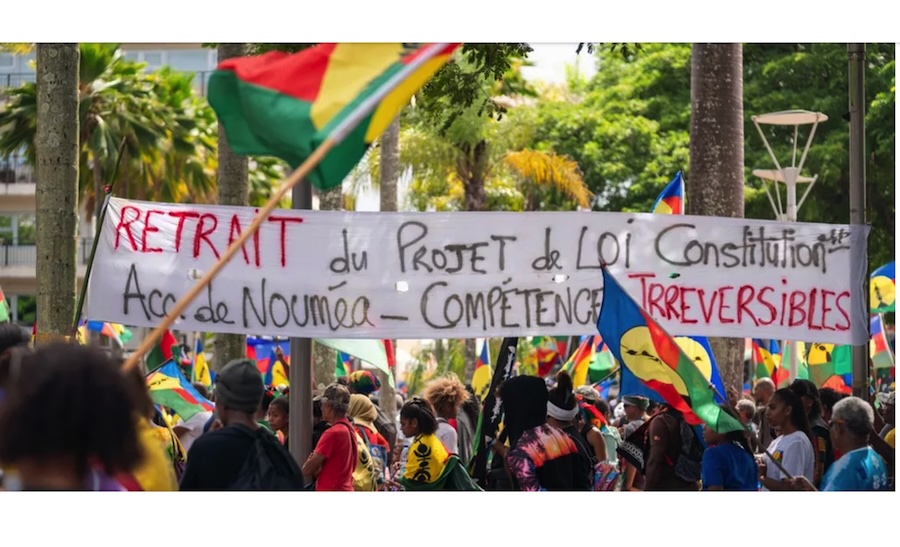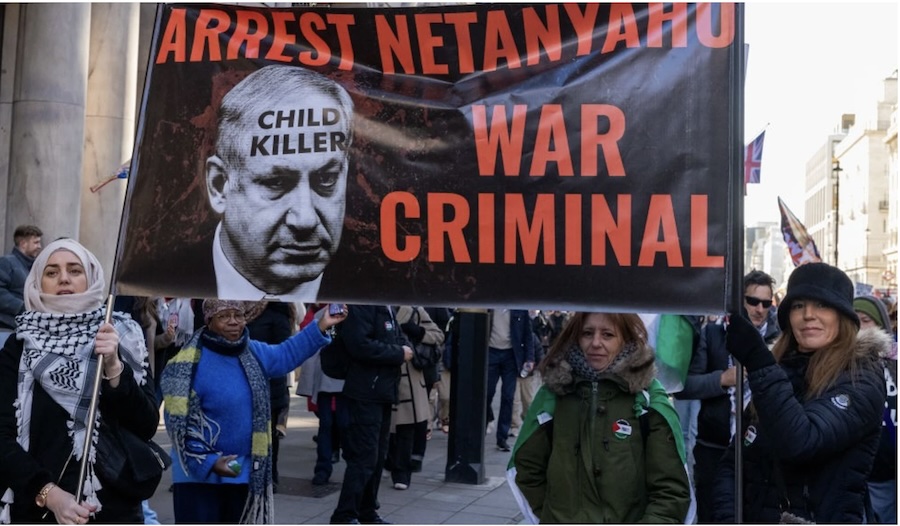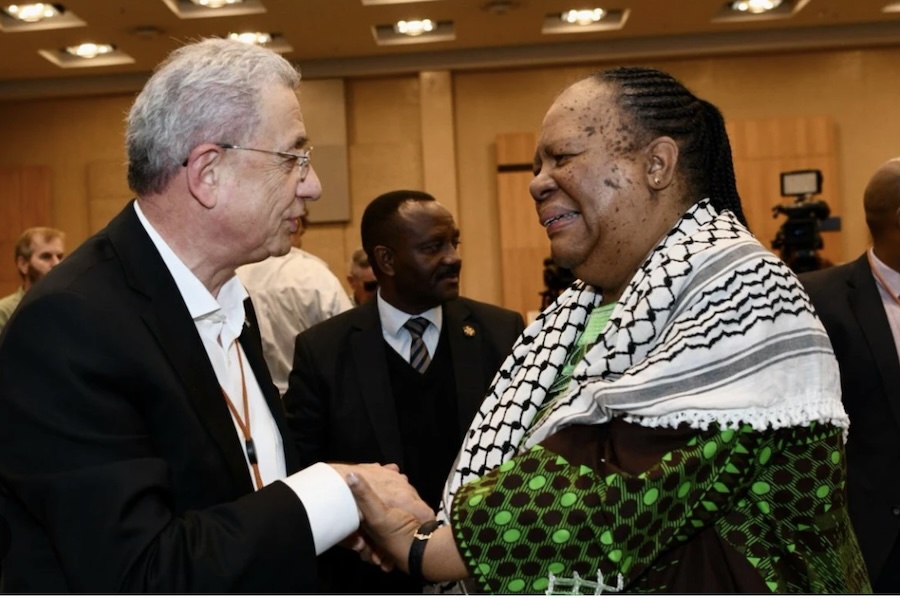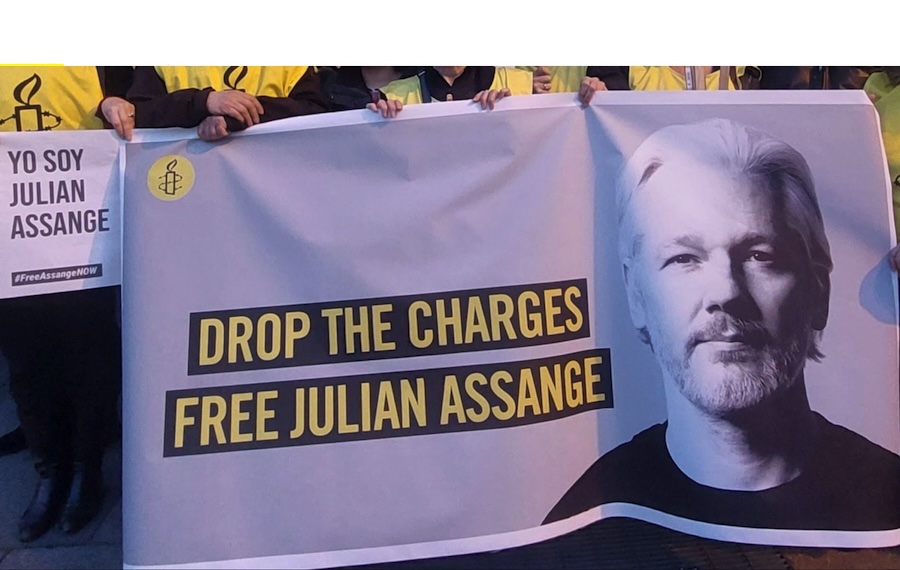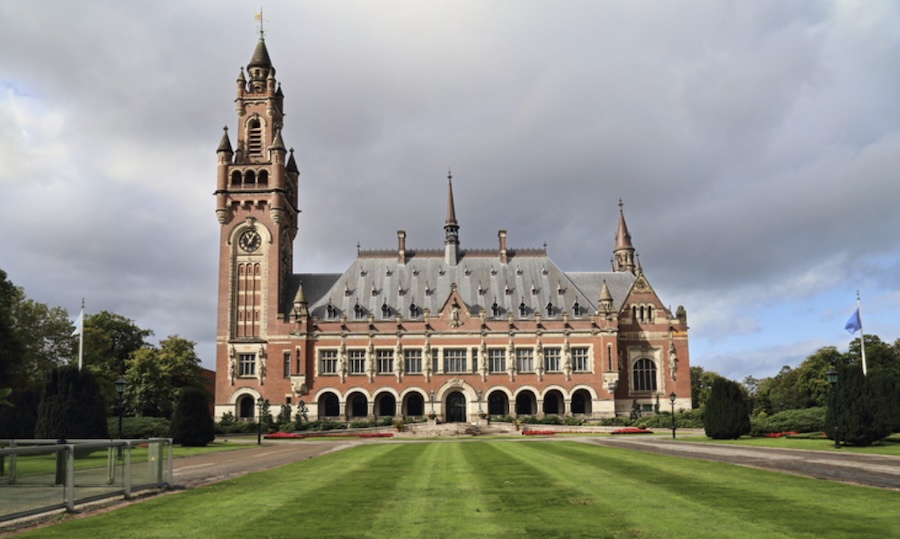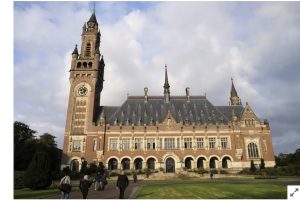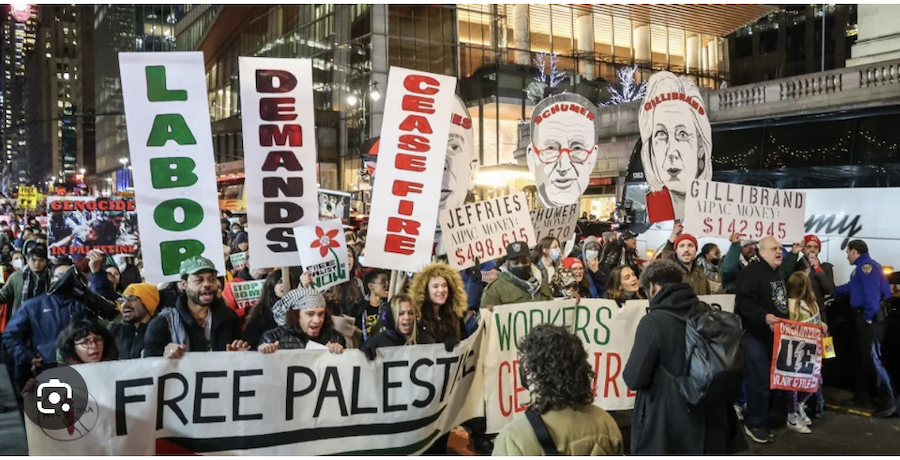. . HUMAN RIGHTS . .
An article from the United Nations Regional Information Centre for Western Europe
The advisory opinion requested by the United Nations General Assembly from the International Court of Justice (ICJ) in December 2022 led to hearings that began on 19 February (read more about the first few days of the hearing in our first article and continued until 26 February, with 52 states and three international organisations presenting their opinions.

Photo copyright ICJ
Iran Criticises “Inaction” of the Security Council
The Islamic Republic of Iran highlighted the “seriousness” of the situation in Gaza on 22 February, pointing to “the inaction or insufficient action of the Security Council, if not the main, is one of the main causes of the prolonged occupation of the Palestinian territories. All the atrocities and crimes committed by the Israeli régime in the past almost 80 years are a consequence of such inaction. Even today, the Security Council is paralysed due to the stalemate caused by a certain permanent Member.”
Iran called for an end to cooperation in all its forms, whether “political, military, economic, or other”, with Israel to prevent it from “continuing its prolonged occupation,” as well as for the “complete termination of all its military operations in the Gaza Strip.”
Iraq and Jordan Demand End of Occupation
Iraq argued for the ICJ’s jurisdiction in the ongoing procedure, noting that the Court had already issued an advisory opinion on the legal consequences arising from the construction of the wall in the Occupied Territories in 2004.
In this opinion, the Court had determined that “the construction of the wall and the regime associated with it created on the ground a ‘fait accompli’ that could become permanent and, as such, amount to a de facto annexation,” in violation of the Palestinians’ right to self-determination.
Baghdad also called for “the respect (…) under any circumstance or in any place” for the opinion rendered by the ICJ on 26 January in the context of South Africa’s complaint against Israel for “genocide” in Gaza, “in order to stop the systematic killing machine against the Palestinian people.”
Speaking for Jordan, Ayman Safadi, Deputy Prime Minister and Minister of Foreign Affairs and Expatriates of the Hashemite Kingdom of Jordan, spoke of the horrors of war in Gaza, where “children are operated on without anaesthesia.” He stated that “in Gaza, Palestinians are dying by Israel’s war. They are also dying from hunger and lack of medication, as Israel prevents the delivery of food and medicine in violation of international humanitarian law and in defiance of the provisional measures you have ordered. This aggression has to end and end immediately. Israel is acting and has been allowed to act in complete disregard of international law. That cannot continue.”
Asserting that “the occupation is illegal and inhumane,” he urged the Court to “rule that the Israeli occupation, the source of all evil, must end.”
13 Additional Countries Discuss Reparations
Visibly moved, Ali Ahmad Ebraheem S. Al-Dafiri, Ambassador of Kuwait to the Netherlands, stated that “the unprecedented violence in Gaza is a result of 57 years of illegal occupation of the Palestinian territories, and it must stop.” Kuwait also demanded an end to the occupation and a negotiated two-state solution along the 1967 borders, with Jerusalem as its capital. It added that “the occupying Power is under the obligation to make full reparation for the injury caused by its occupation and discriminatory policies and practices.”
Lebanon highlighted that the ICJ had already affirmed in 2004 in its opinion on the construction of the wall that Israel was “obliged to return the lands, orchards, olive groves, and other real property seized to any natural or legal person.” Lebanon added that Israel “is also obliged to cease its violation of the right to self-determination of the Palestinian people, to end its occupation of the Palestinian territories, and to recognise the State of Palestine. And to provide reparations.”
Similarly, Libya, Syria, Malaysia, Ireland, Namibia, Oman, Indonesia, Slovenia, Tunisia, Spain, and the Maldives advocated for reparations through restitution or compensation. In total, 19 countries advocated for reparations during the six days of hearings.
The United Kingdom urges the ICJ not to respond to the request for an advisory opinion.
On 23 February, the United Kingdom reiterated many of the arguments previously made in writing by the United States, Canada, Fiji, Hungary, and Zambia, arguing for respect for the existing framework within the Security Council to allow for a negotiated solution to progress.
London went further, asking the Court not to issue a ruling due to the way the questions posed by the General Assembly were formulated. These two questions amount to “taking the entire Palestine question to be looked at by the highest court in the globe,” as stated by the United States.
According to the United Kingdom, the Court cannot interfere in a dispute between two parties, as mentioned in its 1975 advisory opinion on Western Sahara, without the consent of both parties.
Furthermore, the Court could “draw legal conclusions on an incorrect factual basis” due to not only the ongoing conflict but also the extent of the documentation required: “the entire factual record stretching back some 57 years and a United Nations dossier spanning nearly 30,000 pages.”
(continued in right column)
Question related to this article:
How can war crimes be documented, stopped, punished and prevented?
Presenting the Palestinian side of the Middle East, Is it important for a culture of peace?
(continued from left column)
Finally, the United Kingdom believes that the framework established by the Security Council, with resolutions 242 and 338, envisions Israel’s withdrawal from the Occupied Territories through negotiation, not a judicial decision.
… while many countries defended the Court’s jurisdiction
Ireland condemns the 7 October attacks but believes that “these limits have been exceeded by Israel in its military response to the Hamas attack.”
Rossa Fanning, Attorney General of Ireland, stated that his country “believes that clarification now, by this Court, of the international law issues raised by the prolonged occupation of the Palestinian territory will assist in providing a stable foundation upon which to build a just resolution” of the conflict.
“Several States have suggested that this request for an advisory opinion is an attempt to resolve a bilateral dispute without the consent of one of the parties to that dispute. We very much regret that Israel has chosen not to engage with the subject matter of the request. (…) However, in our view, the issue of the Occupied Palestinian Territory is directly of concern to the United Nations itself, and it goes much further than a mere bilateral dispute.”
The ICJ’s jurisdiction was defended by many States, including Norway, which emphasised a situation of “de facto annexation” in the Palestinian Territories, Pakistan, Spain, Japan, and China, which expressed its support “for the just cause of the Palestinian people.” Switzerland stated that “Israel has legitimate security concerns, but also the obligation to respect international law.”
Abdel Sattar Issa, Ambassador of Lebanon to the Netherlands, argued that “asking the Court not to intervene, not to give its advisory opinion in the name of a bilateral negotiation process to be protected, a political solution to be preserved, is a perverse argument that creates antagonism between the political and the legal when they are, in any society, including the international society, two complementary elements in dialectical relation. Law frames the political, prevents its drift, whether at the public or private level. Law guarantees a minimum of justice in relations.”
Similarly, Syria defended the Court’s jurisdiction at a time when “the Palestinian people find themselves with no real protection.” Ammar Al Arsan, Head of the Permanent Mission of the Syrian Arab Republic to the European Union in Brussels, stated, “We are here today to make sure that they – the occupiers – do not get away with impunity.”
“There is no peace process,” according to Indonesia.
Indonesia went further in opposing the argument made by the United States that the Court’s advisory opinion could impact a negotiated peace process: “First, there is no viable peace process to be undermined. Israel has been consistently obstructing a negotiated two-state solution that is in line with international law and relevant United Nations resolutions. (…)
After all, negotiation with someone holding a gun against your head is not a negotiation at all (…). Just last November, Prime Minister Netanyahu even boasted, “I’m proud that I prevented the establishment of a Palestinian State”.
This argument was echoed by the Organization of Islamic Cooperation (OIC), which includes 57 States: “Are there ongoing negotiations between Israel and Palestine? The truth about this matter is that there are none. It is a myth that has been artificially maintained for a long time, but which, in light of events, has collapsed by the admission of the parties involved.”
Qatar advocates for labelling of Israel’s practices as “apartheid.”
Qatar’s position, outlined by Mutlaq Bin Majed Al-Qahtani, ambassador to the Netherlands, highlighted a “growing perception in some quarters that international law applies to some, but not to others. That some peoples are seen as deserving of security, freedom and self-determination, but others are not. Some children are deemed worthy of the law’s protection, but others are killed in their thousands. Qatar rejects such double standards.”
Qatar denounced violence that has become “part of the fabric of life for Palestinians even before the beginning of the occupation in 1967. And Gaza has always paid the highest price. In the 15 years before 7 October, Israeli military campaigns killed 5,365 Palestinians in Gaza, the majority of whom were undisputedly civilians.”
The ambassador mentioned the increase in violence in the West Bank and “the systematic persecution of human rights organisations and journalists,” referring to the death of Shireen Abu Akleh from the Qatari channel Al Jazeera, “murdered by Israeli forces on 11 May 2022.”
Qatar urged the ICJ to label the occupation of the Palestinian Territories as an apartheid regime, an argument advanced by 25 participants in the hearings, so that the “the international community, including the General Assembly, can activate similar mechanisms for bringing about an end of the occupation as it did with the apartheid régime in South Africa. This is the surest path to truth, justice, and, yes, reconciliation.”
Three international organisations speak out.
On 26 February, the last day of hearings, the Arab League called for an end to the occupation and the “immediate” withdrawal of all Israeli settlers from the Occupied Territories.
The OIC concluded its presentation with these words: “The unfounded and unpunished violence that Israel exercises over the Palestinians leads to more violence in response. It is a vicious cycle, that of vengeance, which is always to the advantage of the strongest. This is the deadly cycle of violence that tragically unfolds before our eyes. To break it, an impartial third party, affirming the common standard with authority, is needed.”
Finally, the African Union (AU) declared that “Israel’s aggression against Gaza is nothing but a shameful attempt to create a new Nakba ⎯ , a new catastrophe aimed at erasing the Palestinian presence in Palestine.”
The Court has entered into deliberation before issuing an advisory opinion that will be given at a later date.
– – – – – –
If you wish to make a comment on this article, you may write to coordinator@cpnn-world.org with the title “Comment on (name of article)” and we will put your comment on line. Because of the flood of spam, we have discontinued the direct application of comments.
